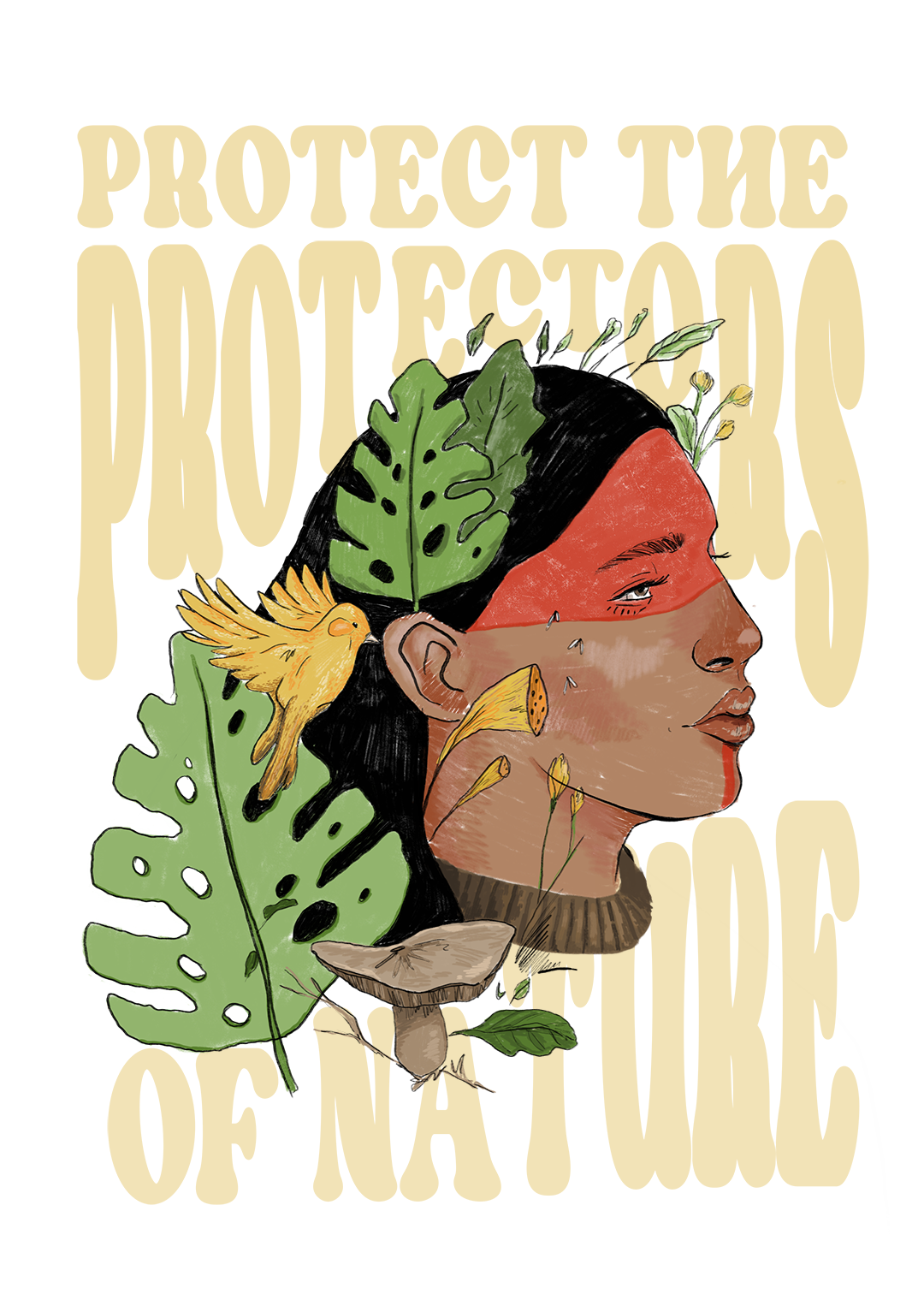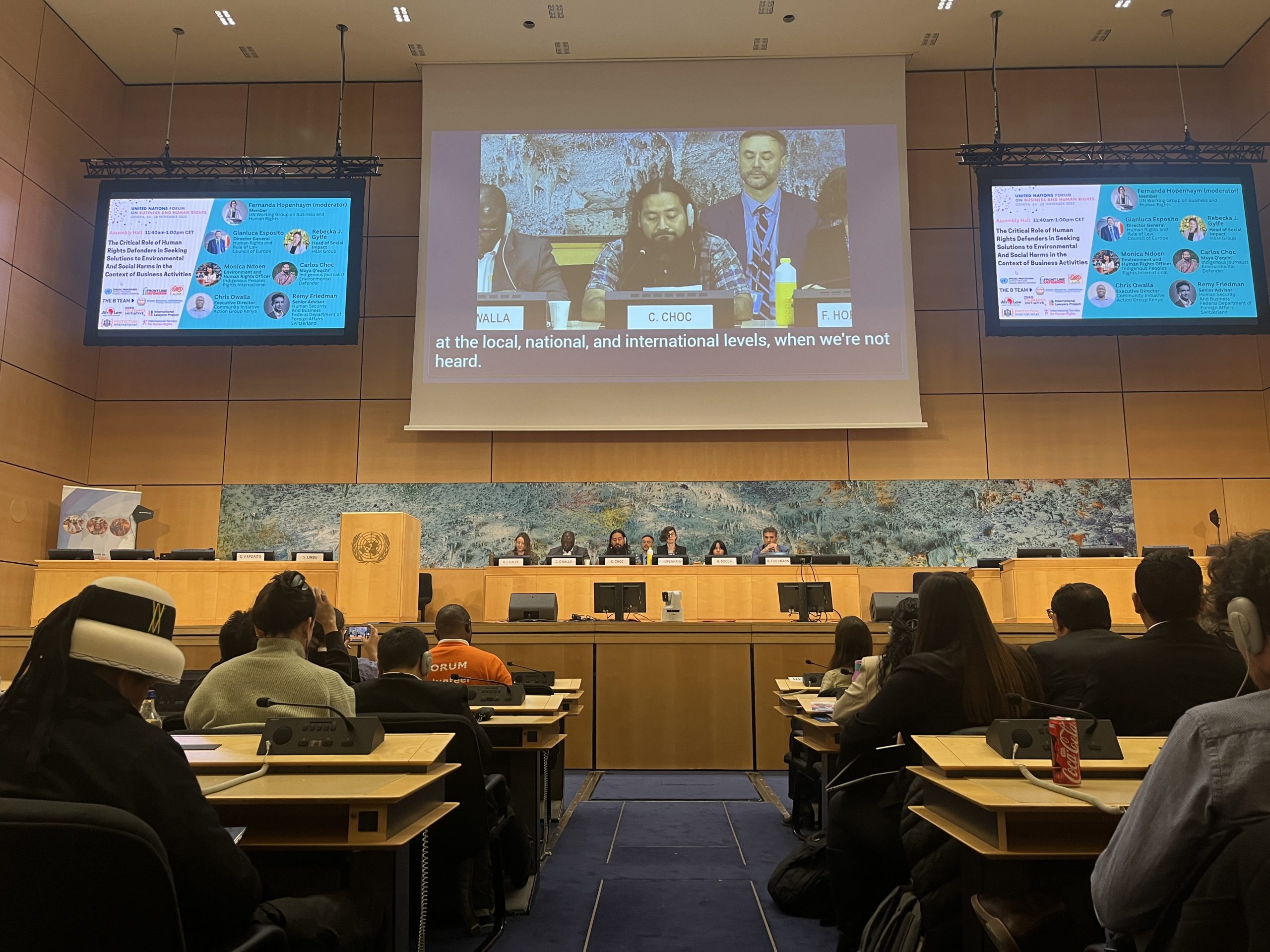By Ben Leather
The COP27 climate summit opened with a stark warning from UN Secretary-General António Guterres that our planet is on a ‘highway to climate hell’. Last year, the IPCC’s Assessment Report made clear that the only way to alter this course would be to harness Indigenous and local knowledge to develop sustainable environmental strategies. The insights, expertise and experience of Indigenous peoples and environmental rights defenders is integral to the realisation of a clean, healthy and sustainable environment for all.
Yet many grassroots environmentalists live in fear of speaking out. Every two days a land and environmental defender is murdered, with Indigenous defenders massively over-represented among those killed. The UN Working Group on business and human rights has recognised that the root cause of attacks lies in business abuses and the work of defenders in ‘[shining] a light on the underlying patterns of harmful business conduct and investment’.
At Peace Brigades International (PBI), we’ve seen this reality first hand, through our protective accompaniment of human rights defenders whose lives are at risk. More than a third of the defenders we support globally have faced threats, criminalisation or attacks for standing up to destructive business projects. They face reprisals for taking a stand against human rights and environmental impacts that could have been avoided in the first place, had companies and investors carried out proper due diligence.
Last week I visited Mexico, where Indigenous leaders and lawyers have faced trumped-up charges and death threats since they formed the FPDTA-MPT, a movement to oppose a gas pipeline imposed upon environmentally critical land without consent. Meanwhile, Reynaldo Dominguez was in London to discuss his experience as one of the Guapinol defenders criminalised for taking a stand against the Los Pinares mining project which threatens his community’s environment. Eight of his colleagues spent two and a half years jailed for their activism. Others have been threatened. The mining concession – for which full community consent was never obtained – remains active. In Africa and Asia too, PBI receives reports of business-related threats to defenders and their communities.
Sadly, these examples show that some businesses can’t be trusted to prevent and mitigate human rights abuses in their operations and supply chains. The UN Working Group on business and human rights have stated that legislative initiatives on due diligence ‘are critical for speeding and scaling up business respect for human rights’. Mandatory due diligence laws are needed to oblige businesses to identify, prevent and mitigate their impacts, and to ensure there are consequences if they don’t. This will mean that less communities need take a stand, and lead to less risks for those who choose to.
If the banks backing Los Pinares had done proper due diligence on the Honduran human rights context and the mine’s potential environmental impact, Reynaldo and his community may not have needed to protest. A full assessment of the pipeline in Mexico could have led the companies behind the project to avoid negative impacts on Indigenous rights, as well as the subsequent disruption brought about by community resistance. Meaningful consultation and consent are not only human rights, but also contribute to more sustainable and responsible business decisions and reduced business risks.
At PBI’s UK office, reports of abuses in the supply chains of British companies are often brought to our attention. The Business and Human Rights Resource Centre identified 129 attacks on human rights defenders connected to UK business activity between 2015 and July 2022, and have also documented specific cases. One such case is that of Juan Carlos Rojas, who received death threats from a paramilitary group after defending the rights of Colombian mine workers employed by a subsidiary of UK-based Anglo American. When Reynaldo was in London, he and Guatemalan environmental defender Carlos Choc called on UK parliamentarians to legislate to rein in business abuses.
As part of the Corporate Justice Coalition, PBI is calling for a Business, Human Rights and Environment Act to mandate all businesses to conduct human rights and environmental due diligence, preventing the kinds of destruction and abuses that human rights defenders end up having to denounce and protest. An effective law would avoid and avert many human rights abuses in the first instance, and also mean corporations could be held liable for backing ventures that lead to attacks on Indigenous leaders, activists and journalists. It would cover all negative human rights impacts across all sectors, and align the UK with steps being taken elsewhere, including through the proposed EU Directive.
Brand name companies, investors worth trillions, and tens of NGOs are united in their support for mandatory due diligence legislation with liability provisions for failing to prevent harm. Consumers agree: a YouGov poll has shown that four in five Britons want a law to eradicate environmental damage and exploitative practices in supply chains, while almost 130,000 people have signed a petition in favour of the law.
In light of their renewed environmental commitments around COP27, it is now time for the UK Government and opposition politicians to respond to these cross-sectoral demands, consult stakeholders – including human rights defenders – and commit to a Business, Human Rights and Environment Act.
And with the UN Forum on business and human rights focusing on strengthening corporate accountability in a way that puts rights holders at the centre, there is no better place for member States and UN experts to begin encouraging the UK Government to do just that.
—-
Ben Leather is Director of Peace Brigades International (PBI) UK. You can follow him at @BenLeather1
Download as PDF




